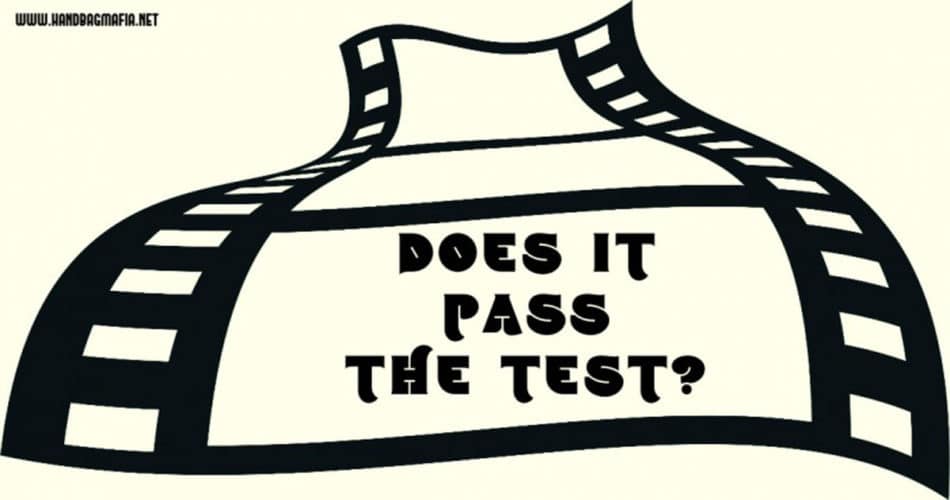The Bechdel Test and Family Movies

The Bechdel Test
Have you heard of the Bechdel Test? It’s a way to show gender equality in films and to demonstrate how women are under represented due to our old friend, sexism. It has 3 criteria that must be met to pass. It must have:
- Two women in it.
- Who talk to each other.
- About something other than a man.
Why?
Women have lives outside of their relationships with men. We have friendships, careers, goals and achievements. I know, I know- hard to believe that we exist outside of our marriages and other romantic relationships. Yet in the majority of movies and television shows, this isn’t the case. This from Wikipedia:
In film, a study of gender portrayals in 855 of the most financially successful U.S. films from 1950 to 2006 showed that there were, on average, two male characters for each female character, a ratio that remained stable over time. Female characters were portrayed as being involved in sex twice as often as male characters, and their proportion of scenes with explicit sexual content increased over time. Violence increased over time in male and female characters alike.
According to a 2014 study by the Geena Davis Institute on Gender in Media, in 120 films made worldwide from 2010 to 2013, only 31% of named characters were female, and 23% of the films had a female protagonist or co-protagonist. 7% of directors are women.
With this is mind, I try to steer my kids towards movies that pass the test. I don’t want them constantly exposed to the idea that it’s a man’s world where women’s lives don’t matter except in how they relate to or interact with men. This is just one way to reinforce the idea and it goes for boys as well as girls. Our older kids are in the 10 to 13 bracket, which is really just on the cusp of teendom. And as we all know- the teen years are where we shape many of our ideals and beliefs, so why not take the opportunity to help breakdown sexist stereotypes before they even take hold?
Does a Bechdel Test Pass Equal a Feminist Film?
In short, no. A movie passing the test doesn’t make it perfect, but like many other things, it’s a good start. I mentioned in my post about Mad Max: Fury Road (which DOES pass, if you were wondering) that we could always do with more strong female characters. It is, however, essentially a superficial measure. Many films meet the criteria of the Bechdel test while still basically showcasing outdated ideas of gender roles. It still holds value, however, because it’s a starting point and gets us thinking about what it is we are watching and exposing our kids to.
Movies that Pass- for Tots, Tweens and Teens
I try to read and watch a lot of what my kids are getting into. I’m not huge on the outright censoring of their entertainment (though I still haven’t quite agreed to let Miss 13 borrow my copy of Stephen King’s IT- something I read as a precocious 11 year old!) but instead try to help guide their choices and then join them. That way, I know what they are reading and watching and we can talk about it. We discuss the themes, talk about our favourite characters and what parts we liked. It turns out that I am a 13 year old trapped in a 33 year old woman’s body in many respects. I like that! It also seems like lots of the movies that pass the Bechdel test were books first (Not all- but quite a few!)- meaning we often read the book before we see the film. So more reading, which is always a plus in my opinion.
I’ve put together a list of flicks that pass the test and are minimal with the sexist stereotyping so prevalent across the board. These are my personal top picks from the last few years.
Brave
Brave is essentially a story that revolves around the mother-daughter relationship. The other cool thing is that the traditional happy ending doesn’t culminate because of a romance.
Matilda
Matilda is a brilliant example of a movie that passes the Bechdel test with flying colours and also features central female characters and an overall theme of a love of learning. Matilda’s joy in knowledge is supported and defended by her teacher, Miss Honey. For a kid’s movie, it’s almost unbeatable in terms of ignoring sexist stereotypes.
Despicable Me
Despicable Me ticks all the boxes, with plenty of conversations between central female characters about a variety of things like cookie sales and the hope of being adopted. The main theme revolves around family…while saving the world!
Maleficent
The premise of this movie is a man who wrongs a woman who then seeks and exacts her revenge… However, the story evolves from that and becomes one about how she finds redemption in her bond with another woman. It has an M rating but kids from approximately 9-10 years old would enjoy it with an adult to help explain any parts they didn’t quite understand.
Divergent
There is Tris, the main character and a host of central female characters. This includes the villian of the piece, Jeanine Matthews, also female. Although there is definitely an evolving love story here, it isn’t the only focus of the story. Divergent shows women being strong, ambitious, selfish, smart, caring, terrified and more. There are many conversations between female characters discussing many things like fighting techniques and politics- not just boys. This one is better for older kids. (Rated M)
Pitch Perfect
This is a great, fun movie that is focussed on a group of young women who build friendships while chasing their musical goals. It showcases friendship, ambition and talent. It’s not strictly a kid’s moving (Rated M) but most tweens and teens will love it!
The Hunger Games
I love, love, love this series. Another one for the older kids with an M rating, the central character and heroine is Katniss Everdeen. Her main concerns in life are putting food on the table and looking after her sister. Then the Hunger Games come up. She takes the place of her sister and must fight for her survival. Traditional gender roles are out the window before Katniss ever sets foot inside the arena. The relationships between the female characters are hugely important to the plot and this is another film that shows a wide scope of emotions experienced by women- and not all of them positive.
Is this something you think about when choosing a family movie?



